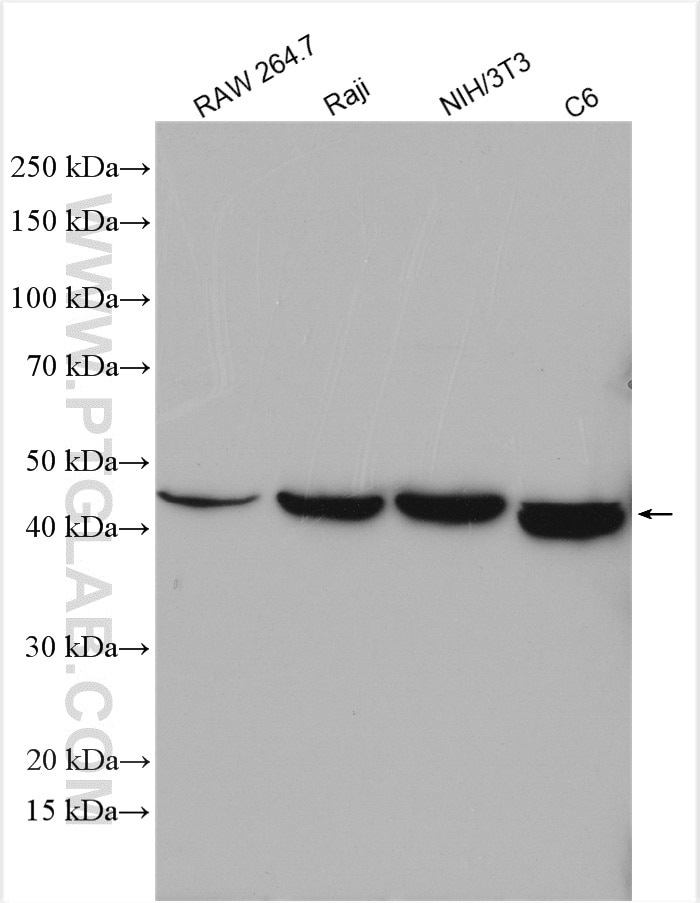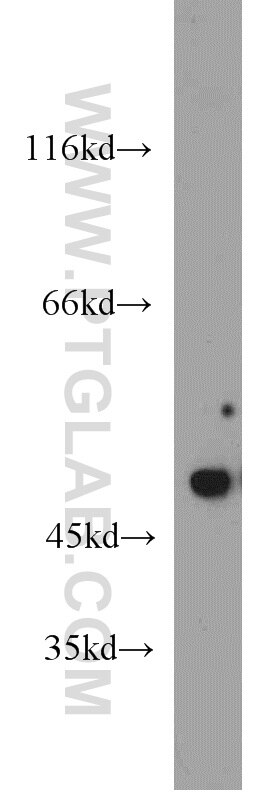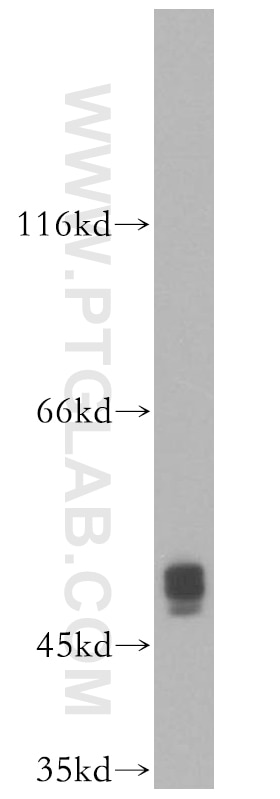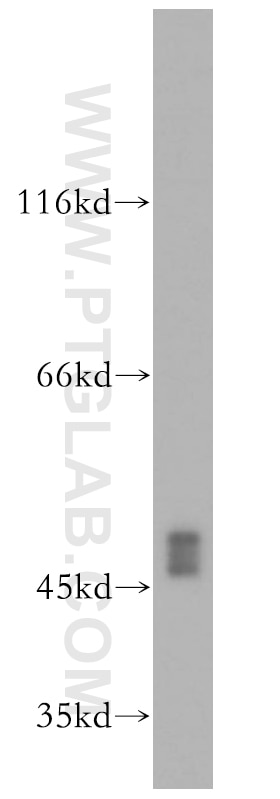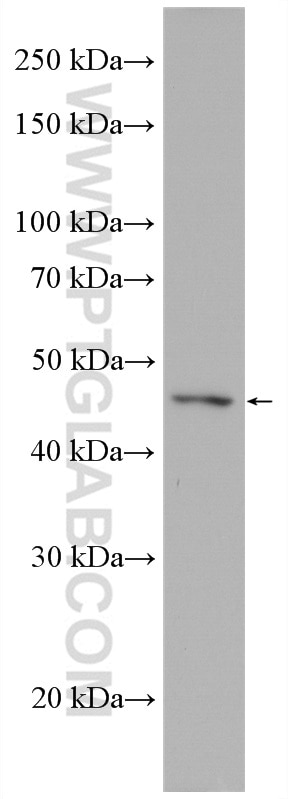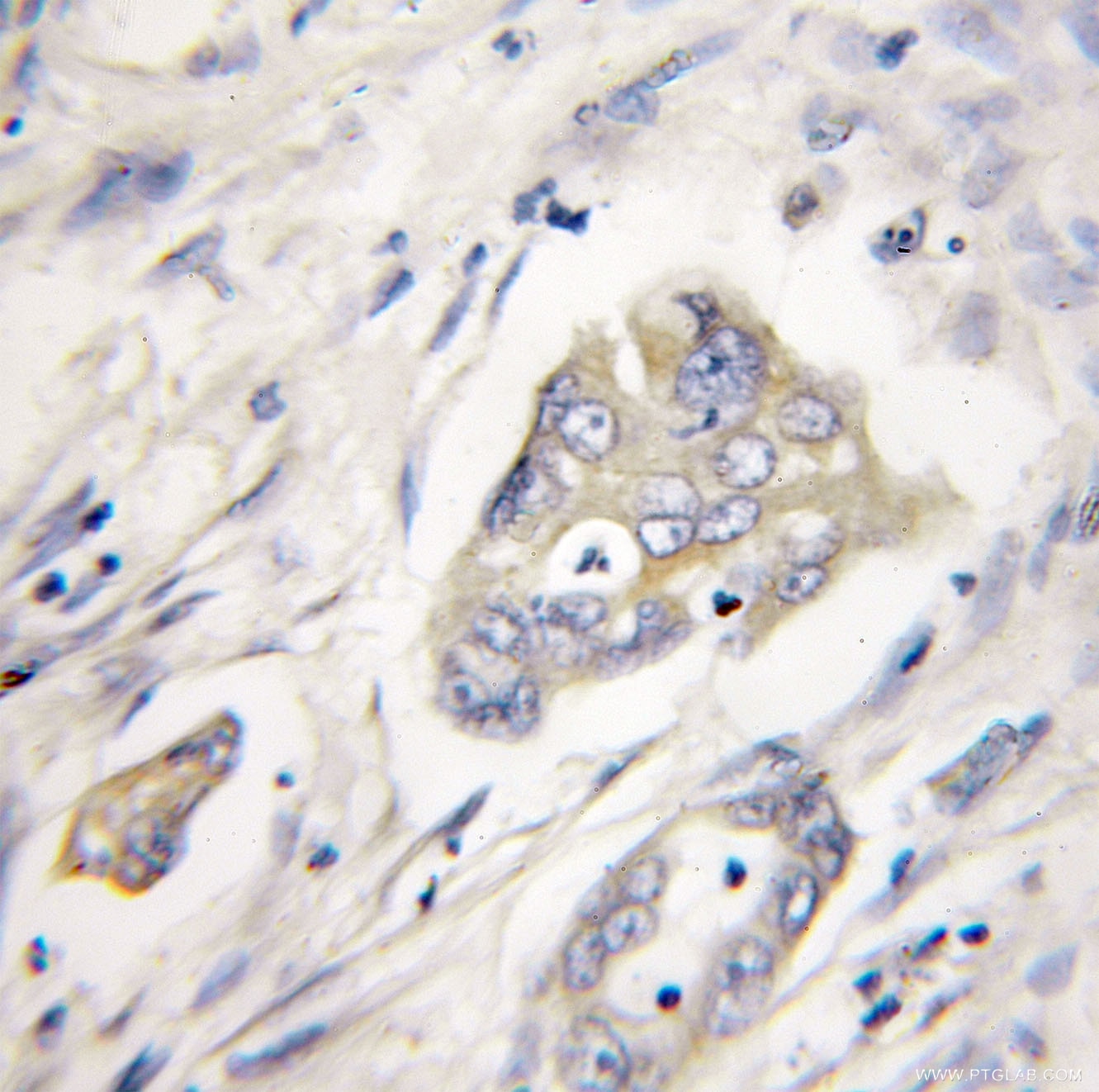- Phare
- Validé par KD/KO
Anticorps Polyclonal de lapin anti-XIAP
XIAP Polyclonal Antibody for WB, IHC, ELISA
Hôte / Isotype
Lapin / IgG
Réactivité testée
Humain, rat, souris
Applications
WB, IHC, CoIP, ELISA
Conjugaison
Non conjugué
N° de cat : 10037-1-Ig
Synonymes
Galerie de données de validation
Applications testées
| Résultats positifs en WB | cellules RAW 264.7, cellules C6, cellules COLO 320, cellules HeLa, cellules HepG2, cellules Jurkat, cellules NIH/3T3, cellules Raji |
| Résultats positifs en IHC | tissu de cancer du pancréas humain il est suggéré de démasquer l'antigène avec un tampon de TE buffer pH 9.0; (*) À défaut, 'le démasquage de l'antigène peut être 'effectué avec un tampon citrate pH 6,0. |
Dilution recommandée
| Application | Dilution |
|---|---|
| Western Blot (WB) | WB : 1:500-1:2000 |
| Immunohistochimie (IHC) | IHC : 1:20-1:200 |
| It is recommended that this reagent should be titrated in each testing system to obtain optimal results. | |
| Sample-dependent, check data in validation data gallery | |
Applications publiées
| KD/KO | See 2 publications below |
| WB | See 45 publications below |
| IHC | See 11 publications below |
| CoIP | See 1 publications below |
Informations sur le produit
10037-1-Ig cible XIAP dans les applications de WB, IHC, CoIP, ELISA et montre une réactivité avec des échantillons Humain, rat, souris
| Réactivité | Humain, rat, souris |
| Réactivité citée | rat, Humain, souris |
| Hôte / Isotype | Lapin / IgG |
| Clonalité | Polyclonal |
| Type | Anticorps |
| Immunogène | XIAP Protéine recombinante Ag0022 |
| Nom complet | X-linked inhibitor of apoptosis |
| Masse moléculaire calculée | 60 kDa |
| Poids moléculaire observé | 45-57 kDa |
| Numéro d’acquisition GenBank | BC032729 |
| Symbole du gène | XIAP |
| Identification du gène (NCBI) | 331 |
| Conjugaison | Non conjugué |
| Forme | Liquide |
| Méthode de purification | Purification par protéine A |
| Tampon de stockage | PBS with 0.02% sodium azide and 50% glycerol |
| Conditions de stockage | Stocker à -20°C. Stable pendant un an après l'expédition. L'aliquotage n'est pas nécessaire pour le stockage à -20oC Les 20ul contiennent 0,1% de BSA. |
Informations générales
XIAP, also named as API3, BIRC4 and IAP3, belongs to the IAP family. It has E3 ubiquitin-protein ligase activity. It mediates the proteasomal degradation of target proteins, such as caspase-3, SMAC or AIFM1. XIAP is an inhibitor of caspase-3, -7 and -9. It mediates activation of MAP3K7/TAK1, leading to the activation of NF-kappa-B. XIAP is an apoptotic suppressor. It is ubiquitinated and degraded by the proteasome in apoptotic cells. The MW of XIAP is 45-56 kDa.
Protocole
| Product Specific Protocols | |
|---|---|
| WB protocol for XIAP antibody 10037-1-Ig | Download protocol |
| IHC protocol for XIAP antibody 10037-1-Ig | Download protocol |
| Standard Protocols | |
|---|---|
| Click here to view our Standard Protocols |
Publications
| Species | Application | Title |
|---|---|---|
Nat Commun Targeting dual-specificity tyrosine phosphorylation-regulated kinase 2 with a highly selective inhibitor for the treatment of prostate cancer. | ||
Cancer Res DAB2IP is a bifunctional tumor suppressor that regulates wildtype RAS and inflammatory cascades in KRAS mutant colon cancer | ||
Cancer Res An ATM/TRIM37/NEMO axis counteracts genotoxicity by activating nuclear-to-cytoplasmic NF-κB signaling. | ||
EMBO Rep XIAP-mediated degradation of IFT88 disrupts HSC cilia to stimulate HSC activation and liver fibrosis
| ||
Acta Pharmacol Sin Aspirin modulates succinylation of PGAM1K99 to restrict the glycolysis through NF-κB/HAT1/PGAM1 signaling in liver cancer. | ||
Int J Nanomedicine Synergism of cisplatin-oleanolic acid co-loaded calcium carbonate nanoparticles on hepatocellular carcinoma cells for enhanced apoptosis and reduced hepatotoxicity. |
